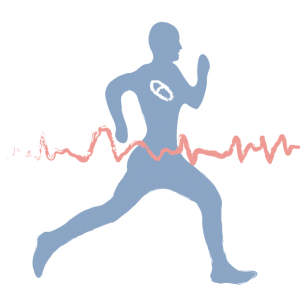We should live in a world where everyone has the chance to age healthy. We can get there by investing in the following two strategies and implementing them in this order:
(1) Personalized health tracking and advice. Stop using antioxidant supplements, stop plastering exotic fruit extracts on your face, and stop that crazy zero-carb diet. Unless, of course, you’re tracking and know that it’s benefiting you. There’s a Dutch saying ‘meten is weten’ which means ‘measuring is knowing’ and that sums it all up. You need to understand your own body to understand if the things you are trying are working for you. That means knowing your genome, microbiome, blood sugar responses to meals, activity levels, heart rate variability, and sleep patterns, to name a few.
Why? Let’s take the case of ‘calorie restriction,’ a diet that has been shown to extend health and lifespan in lots of animals in the lab and there’s some evidence it could be beneficial in primates and humans1. The problem is that scientists also found in a study in mice, that with certain genetics, the mice under this supposedly ‘healthy aging’ diet ended up living much shorter than a mouse not doing any dieting at all!2. So we need personalized advice, and that makes the tracking a necessity. Only personalized recommendations will let us live healthy long lives.

(2) Medicines that repair the degeneration of aging. People often don’t seem to fully realize that having a healthy lifestyle while you age, although extremely important, is not enough. It can certainly reduce your chances of getting diseases as you age and is highly recommended, but it’s no guarantee and you will get diseases eventually nonetheless. Aging is still going on, and aging is a major risk factor for disease. As time goes on, changes happen in your cells, such as an accumulation of damage to molecules. Scientists have been realizing though that aging is not passive, but can be actively regulated, for instance by increasing chromosome stability in cells3, by increasing stability of proteins in cells4, by removing cellular components if they do get damaged5, or by removing the cells that have become too damaged6. Importantly, scientists see that healthy aging is improved with these interventions. With aging our bodies fall apart and we get diseases, and there is no avoiding diseases unless we make medicines to ‘soften’ the falling apart process of our cells.
We don’t have to treat the diseases that come as we age. The goal is to never get the age-related disease in the first place. Or at least the goal is to greatly reduce our chances of getting them. Now that’s a disruptive idea.
The bottom line: we need personalized tracking of our health to better understand what each individual needs to age healthy, and we need interventions that target the aging process. There’s no point in having the second one without the first, and the first one is already a tremendous step for healthy aging.
